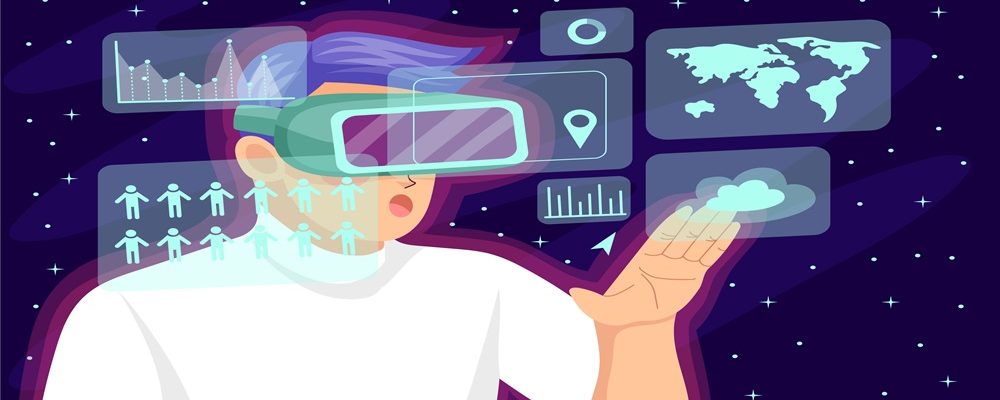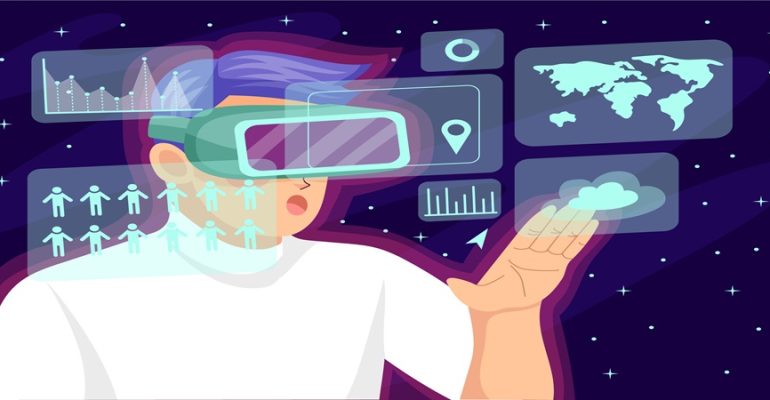
Evolution of AI in the Realm of Mobile App Development

Evolution of AI in the Realm of Mobile App Development
Preface
The development of mobile apps has been significantly affected by the development of artificial intelligence (AI), particularly in the context of augmented reality (AR) and virtual reality (VR). As mechanical headways keep on molding the way we connect with our gadgets, Artificial intelligence has turned into a main impetus in improving client encounters and pushing the limits of what is conceivable.
In the beginning phases of portable application advancement, artificial intelligence was fundamentally used for essential errands like discourse acknowledgment and language interpretation. Nonetheless, as handling power expanded and calculations turned out to be more complex, engineers started investigating Artificial intelligence’s true capacity to make more vivid and keen applications, particularly in the fields of AR and VR.
Technologies like augmented reality (AR) and virtual reality (VR) have provided mobile app developers like Sapizon Technologies, Google, or Meta with new opportunities to create applications that bridge the digital and physical worlds. By delivering personalized content, object recognition, and real-time data processing, artificial intelligence plays a crucial role in enhancing these immersive experiences.
AI algorithms were mostly used for basic functions like object tracking and gesture recognition in the early stages of integrating augmented reality and virtual reality into mobile apps. As the innovation developed, simulated intelligence-driven PC vision calculations turned out to be further developed, taking into consideration exact and setting mindful communications inside AR and VR conditions.
One outstanding area of progression is in the field of AR-based route applications. Artificial intelligence calculations can examine continuous camera contribution to perceive the client’s environmental factors and overlay significant data onto the screen, like route headings or focal points. This not only makes it easier for users to navigate but also shows how AI can deliver information in a way that is relevant to the context.
Additionally, AI has made a significant contribution to the creation of realistic VR simulations. AI calculations empower the production of dynamic and responsive virtual conditions that adjust to client conduct. This prompts more vivid VR encounters where the virtual world responds wisely to client activities, upgrading the sensation of presence and commitment.
As cell phones keep on developing, artificial intelligence’s part in advancing equipment assets for AR and VR applications turns out to be progressively significant. Artificial intelligence calculations help progressively improve designs, guaranteeing a consistent encounter even on gadgets with restricted handling capacities. This has prompted the democratization of AR and VR encounters, making them more open to a more extensive crowd.
Personalization is another key viewpoint where Artificial intelligence has taken huge steps in AR and VR portable application advancement. By examining client inclinations, conduct, and association designs, Artificial intelligence can fit the content and encounters of individual clients. This degree of personalization improves client fulfillment as well as opens up new roads for designated promoting and content conveyance.
Lately, the mix of Artificial intelligence, AR, and VR has led to imaginative applications in fields like schooling, medical services, and gaming. For example, AI-driven instructive applications can establish versatile growth opportunities in AR conditions, fitting substance to individual learning styles. In medical services, VR applications upheld by artificial intelligence are being utilized for re-enactments and preparing, giving a protected and controlled climate for clinical experts to upgrade their abilities.
Wrap Up
It is anticipated that the rapid evolution of AI in the field of mobile app development using augmented reality and virtual reality will continue in the future. Progressions in regular language handling, feeling acknowledgment, and prescient examination will additionally improve the capacities of these advances. We can anticipate a future in which mobile apps provide AR and VR experiences that are even more sophisticated, personalized, and intelligent as developers continue to investigate the synergies between immersive technologies and artificial intelligence. The excursion of simulated intelligence in portable application advancement is an astonishing one, promising to reclassify the way we connect with computerized content and our general surroundings.